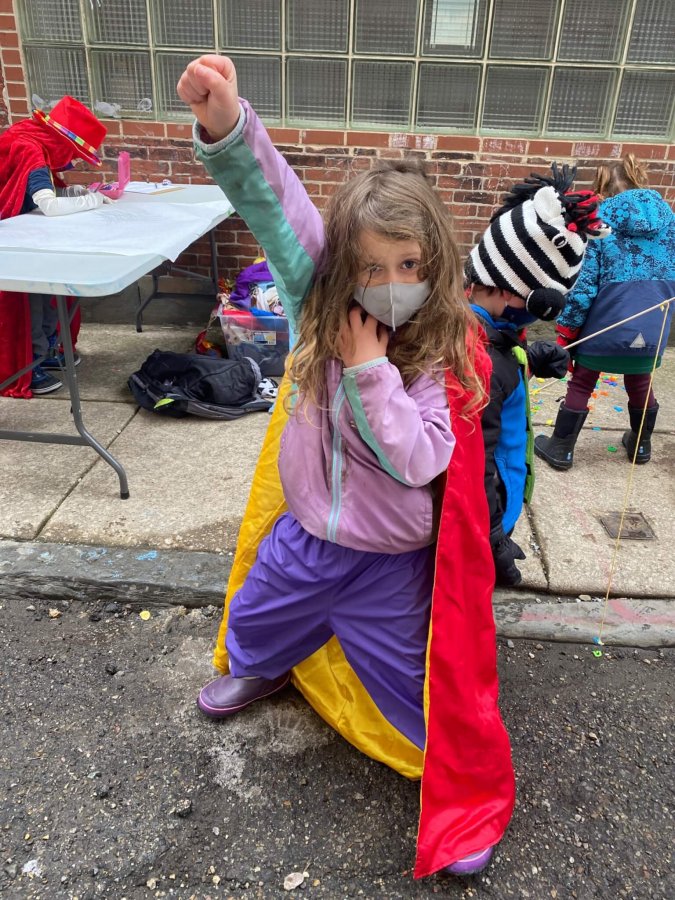
Last week, our story amped up the drama. We met the text’s leading antagonist, Haman (boooo!), and learned about his plan to get rid of all the Jews in Achashverosh’s kingdom. He drew lots to choose a random date to enact his plan, and ended up with the 13th of Adar (that’s this Friday!). Interestingly, this part of the story took place in Nissan, 11 full months before Adar. So the whole kingdom learned about this plan to get rid of the Jews, and then was left to sit with that for almost a full year.
Some of our Garinim (preK and K kiddos) thought that the long wait would be helpful:
- Maybe if enough time goes by they’ll change their minds and they won’t want to get rid of the Jews anymore.
- It’s better for them to have more time that they know they’re safe before the bad date.
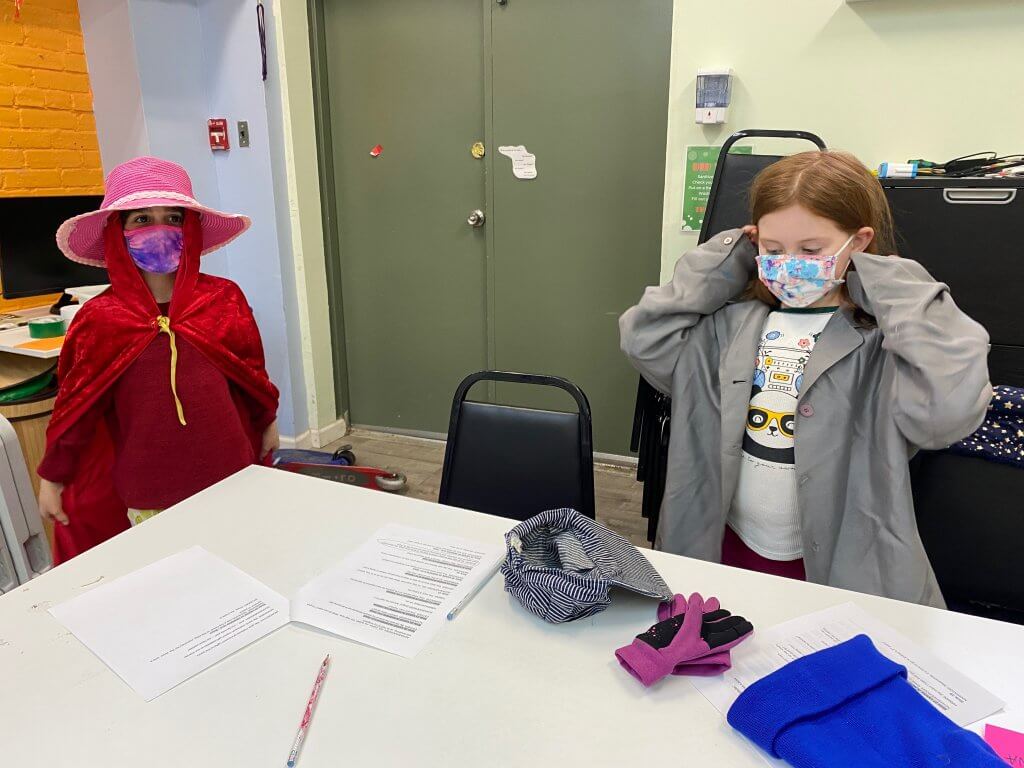
The Nitzanim (3rd and 4th graders) reflected on the stress and anxiety that can come up from anticipating something big, important, or scary coming up way far in advance. What can we do to feel less stressed/anxious when anticipation exists?
- Distract yourself.
- Do something you would enjoy, like watch YouTube or eat pizza and ice cream.
- Be prepared for any outcome, sometimes I feel sick so I bring a pot to sleep with.
- Take deep breaths and drink some water.
- Root yourself in your surroundings, look at how many details around you that you can notice.
- Let yourself feel the feelings, sometimes you just need to cry.
- Sometimes your feelings just want attention.
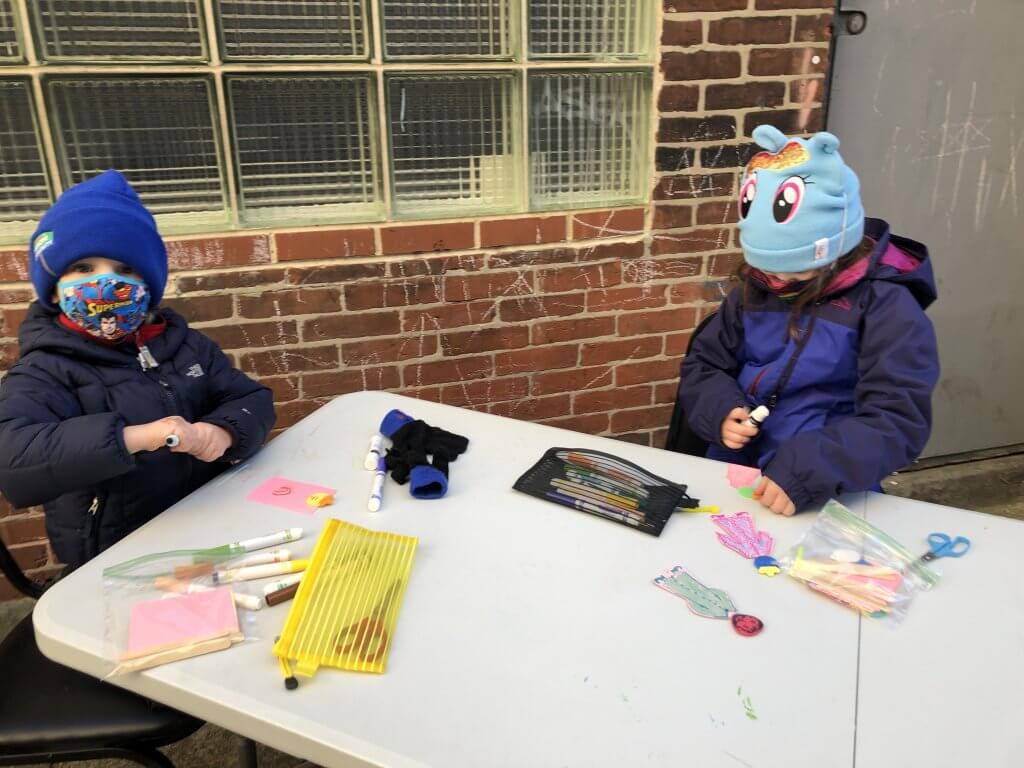
What do you find comforting in the face of something scary and upsetting?
- Try not to see it and distract yourself.
- I squeeze my parent’s hand.
- Talking about it with somebody.
- Watch Youtube and eat pizza and ice cream.
- Hang out with people I trust.
- Sleep with a stuffed animal or doll.
- Hope for the best.
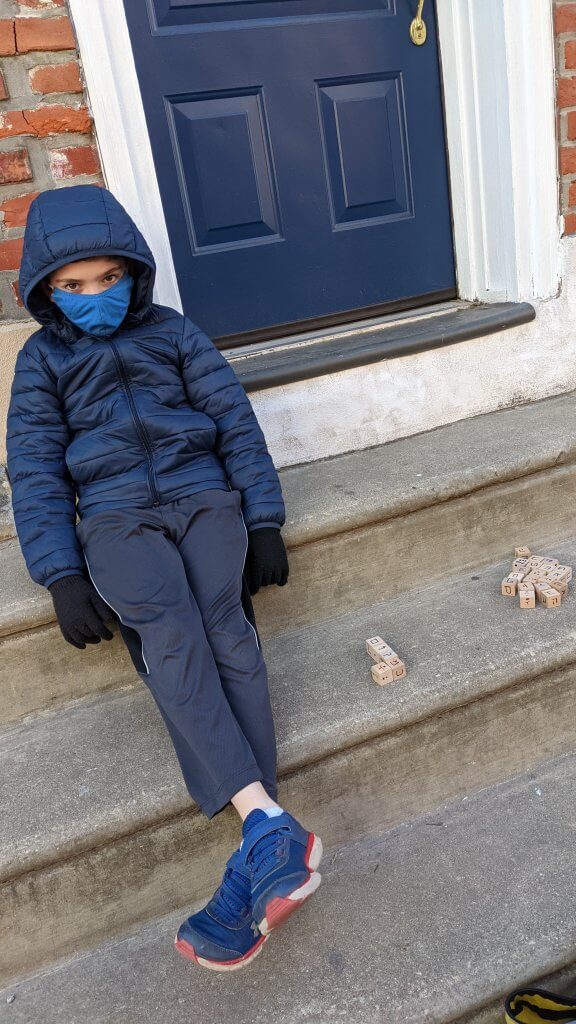
The Jewish people in the capital city of Shushan responded to this scary news by going into mourning – they cried, wore sackcloth instead of clothes, and put ashes on their bodies. When Esther noticed Mordechai sitting outside the palace looking like that, she became concerned and sent a servant out to talk to him. Mordechai explained what was going on and asked Esther to talk with Achashverosh and ask him to save her and her people. Esther was scared to do that. There was a rule that if you tried to go talk to the king without being invited that you could be killed. In the end, she decided to go, but first she asked Mordechai for help: “Go, assemble all the Jews who live in Shushan, and fast on my behalf; do not eat or drink for three days, night or day. I and my maidens will observe the same fast. Then I shall go to the king, though it is contrary to the law; and if I am to perish, I shall perish!” (Esther 4:16).
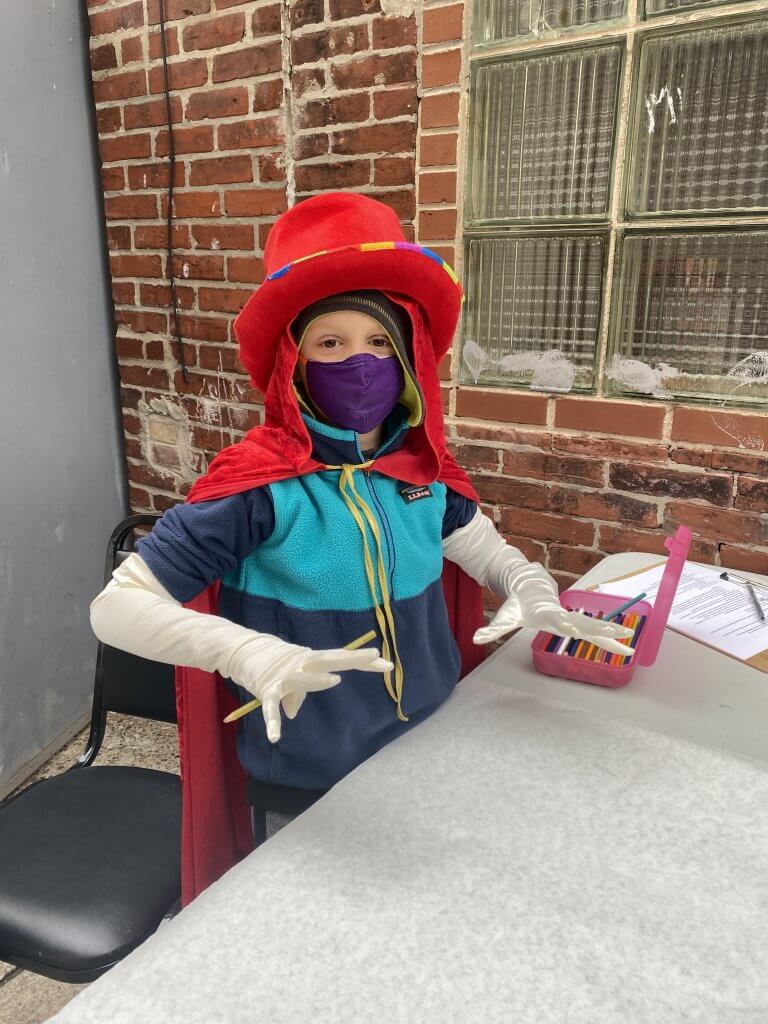
We talked about this collective fast as a way for the Jewish people to stand in solidarity with each other, and with Esther in particular. Our learners connected the fast from the story to the Black Lives Matter protests they experienced in the spring or the Women’s Marches they’ve seen and heard about.
Why might fasting have been helpful in showing solidarity with Esther?
- The King might become concerned and want to help.
- Fasting doesn’t draw attention, if they drew attention to themselves they might die faster.
- Fasting might be a form of a peaceful protest.
- It’s really personal.
- It’s showing solidarity as long as you’re doing the same thing as the person you’re showing solidarity with.
- It’s like the whole people crossing their fingers together, hoping she won’t get killed.
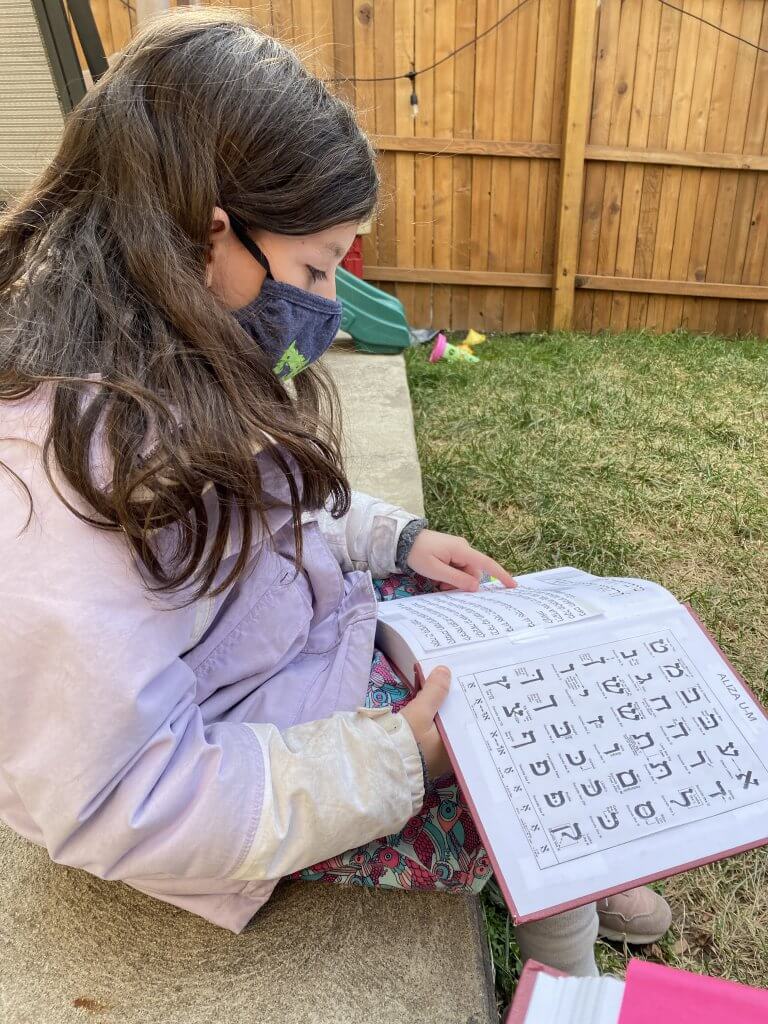
How did Esther feel when she saw Jewish people standing with her through fasting?
- More like she could do it because other people were doing it with her. More confident.
- “I can do this, I’m determined!”
- Shock, “Oh my goodness they actually did that!”
- “All these people are doing something for me” probably feels important.
- Pretty good because she has power over a lot of people and the people like what she’s doing.
- I think she felt good because people were making a sacrifice for her.
- Strong and proud because everybody is listening and that might make things change.
- Comforted – like a little less worried and nervous to go see Achashverosh.
- Brave, like she knew she could go to Achashverosh even though it was still scary.
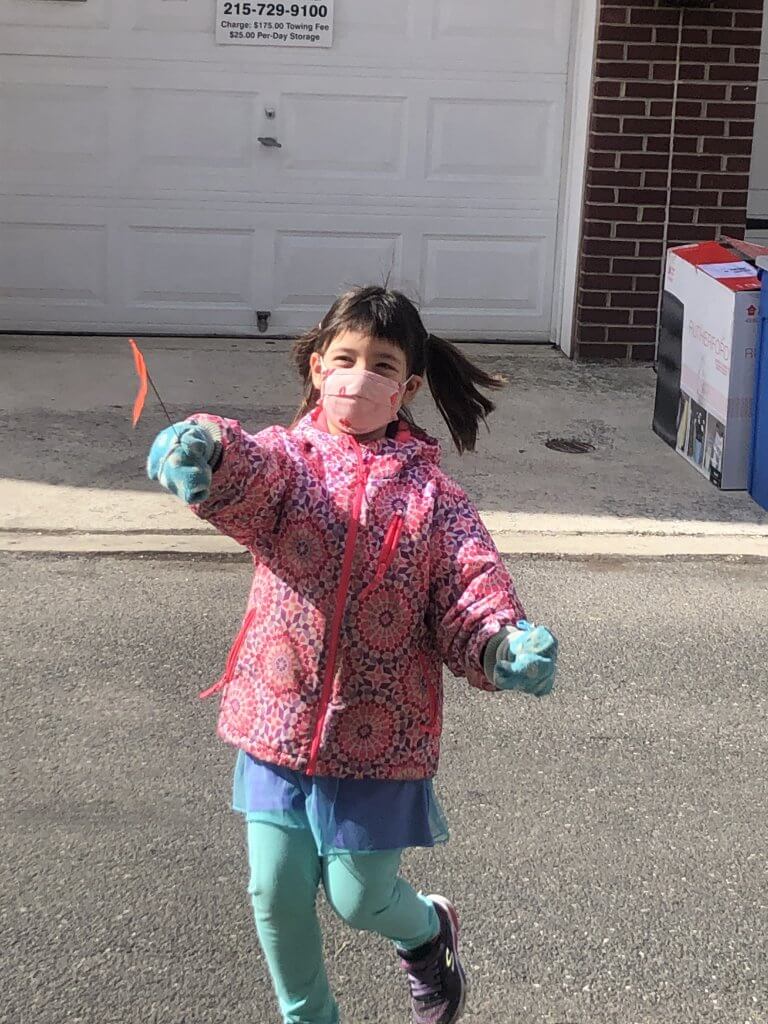
How do you show solidarity with someone?
- Sometimes I don’t completely want to do something that my parents and sister want to do, but I’ll give in.
- I went to the kids BLM march with my family. We marched and we protested because we didn’t believe what was going on in the world was fair to black people.
- That beautiful Saturday that was going to be a count every vote rally that ended up turning into a celebration.
- Showing your support can be showing solidarity.
What about you? How do you show support to someone going through a difficult time? And what kinds of support are most helpful for you to receive? Maybe take some of your kids’ advice: try squeezing a hand, talking it out, spending time with people you trust. And know that we at Makom Community are here for you if you need us.
